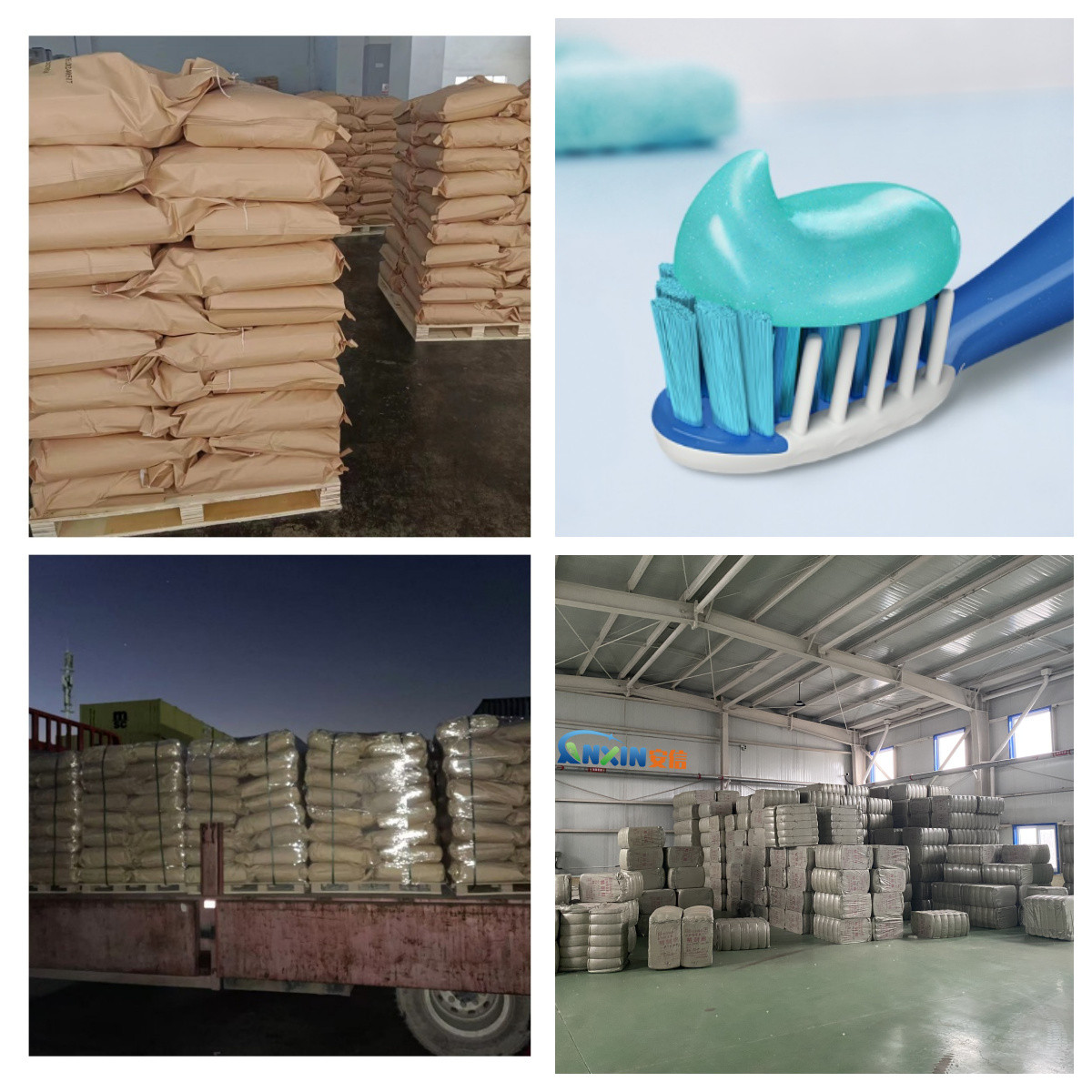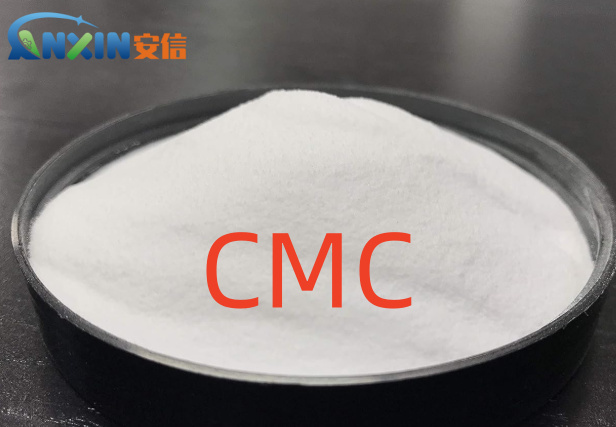Sodium carboxymethyl cellulose (CMC) is an important water-soluble cellulose ether, which is an anionic polymer compound obtained by alkalization and etherification of cellulose. As a thickener, stabilizer, emulsifier, film former and moisturizer with excellent performance, CMC has a wide range of important applications in the toothpaste industry.
1. The main role of CMC in toothpaste
1.1. Thickening effect
The most important role of CMC is as a thickener. The basic requirements of toothpaste are that the paste must have good consistency, suitable fluidity and thixotropy, easy to squeeze out of the toothpaste tube, and maintain the paste structure during brushing, and not easy to lose. CMC can form a transparent colloidal solution when dissolved in water, which can effectively increase the viscosity of the toothpaste system and make the paste have excellent consistency and stability.
1.2. Stabilize the paste structure
Toothpaste is a composite system composed of multiple components (such as abrasives, surfactants, flavors, glycerin, water, etc.). CMC can play a good role in suspension and stabilization, making solid particles (such as abrasives) evenly distributed in the matrix, preventing stratification, sedimentation and liquid separation, and effectively extending the shelf life of the product.
1.3. Improve touch and spreadability
CMC solution has a certain smoothness and softness, which can improve the taste of toothpaste, making it smoother when used, without irritating the gums, and improving the user experience. At the same time, CMC has a certain film-forming property, which helps to form a protective film and has a gentle protective effect on the oral mucosa.
1.4. Controlled release and moisturizing effect
Active ingredients (such as fluoride, anti-allergic factors, etc.) are added to some functional toothpastes. CMC can help control their release rate and improve the utilization efficiency of active ingredients. In addition, CMC has a strong ability to absorb moisture and moisturize, which helps prevent toothpaste from drying and cracking and improves storage stability.
2. Performance advantages of CMC
2.1. High water solubility and safety
CMC can be quickly dissolved in cold water, is easy to use, does not require heating, and meets the rapid production requirements of the toothpaste industry. CMC is a natural polymer modified product with good biocompatibility and oral safety. It is non-toxic and non-irritating and will not cause adverse effects on human health.
2.2. Strong viscosity adjustability
CMC products have a wide range of viscosity grades (generally 25 to 8000mPa·s), which can be selected according to the specific needs of toothpaste formulas, facilitating personalized design of paste texture.
2.3. Good compatibility
CMC has good compatibility with other commonly used components of toothpaste (such as glycerin, sorbitol, foaming agent, abrasive, etc.), and exhibits stable performance in different systems.
3. Precautions for using CMC
When using CMC in toothpaste formula, the following points should be noted:
Control the amount of addition: The general amount of addition is 0.5% to 1.5%, depending on the product consistency requirements. Excessive use may cause the paste to be too thick and difficult to extrude.
Correct dissolution method: It should be slowly added to water under stirring conditions to avoid the formation of lumps. It can also be mixed with wetting agents such as glycerin in advance and then added to water to dissolve to improve dispersion efficiency.
Formula compatibility check: It may have adverse reactions with certain cationic surfactants or high-concentration inorganic salts, and small tests should be conducted to verify its compatibility.

4. Development trend of CMC in the toothpaste industry
With people’s attention to oral health and the diversified development of functional toothpaste, higher requirements are also placed on the performance of toothpaste raw materials. As a traditional and mature thickener, CMC’s position remains stable. However, in order to meet more complex process and taste requirements, the industry is also developing modified CMC (such as cross-linked, esterified, etc.) or compound systems (such as CMC with xanthan gum, guar gum, etc.) to optimize paste performance. In addition, the rise of green, natural and environmentally friendly raw materials has also pushed CMC to develop in the direction of high purity, low impurities and low residual ether.
As a key thickening and stabilizing ingredient in toothpaste formula sodium carboxymethyl cellulose (CMC) has been widely used in toothpaste production around the world due to its excellent physical and chemical properties, safety and economy. In the future, with the advancement of CMC production technology and the continuous upgrading of toothpaste products, CMC will play a more important role in improving toothpaste quality and user experience.
Post time: Jun-10-2025
